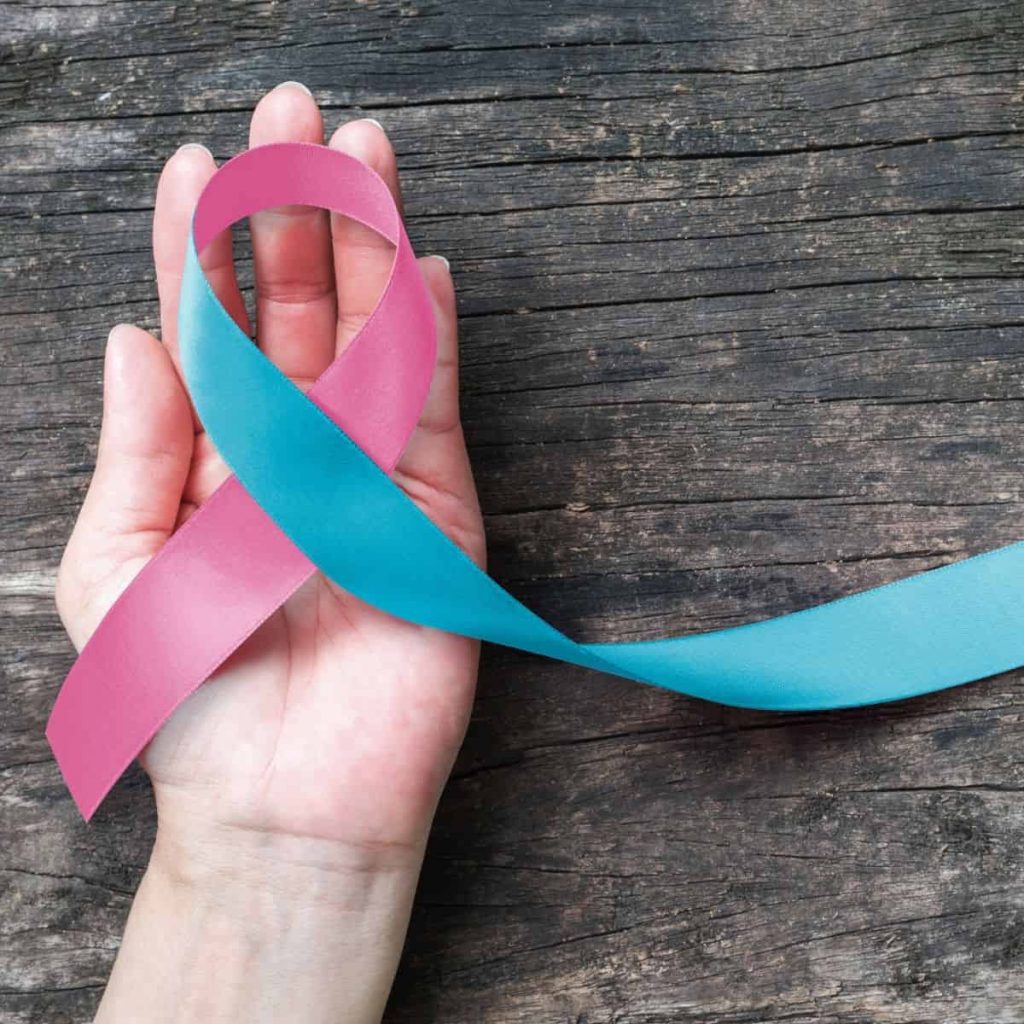When I had my first miscarriage, I learned at 8 ½ weeks that the pregnancy had ended before I even knew it’d begun. That is, I’d been carrying a nonviable pregnancy for over a month, and I had no idea. I wondered:
- How was this possible?
- Why did I still have morning sickness all day?
- Why did my body still think it was pregnant?
Confused, angry, devastated, and dizzy with grief, I immediately went to Facebook. Why? I was looking for support groups for miscarriage.
What’s especially amazing about miscarriage support groups is that you can find them for all different types of miscarriage. It’s not just miscarriage quotes (which are great), but actually other people who understand the experience.
My first support group for pregnancy loss was for women who had blighted ovum stories to tell, as that was my first type of loss.
I later found a recurrent miscarriage support group to help me through one of the most difficult times in my life. And the women I met in these groups are still part of my social network.
They’ve become compassionate friends, never judging my journey despite some having experienced miscarriage, stillbirth, and even infant death. I love them to this day.
I continue follow their lives, and even lean on one for health care perspectives that I share on this very website.
I also recently celebrated a successful adoption for someone I connected closely with, and connecting with her and celebrating her has been amazing.
Honestly, I don’t know how I’d have made it through recurrent miscarriage without support groups for pregnancy loss, and also for pregnancy after loss support.
And they continue to enrich my life. Parents who have experienced the loss of a child to miscarriage bond in an uncanny way.
That’s the beauty of miscarriage support groups. They’re full of grieving families who really get what you’re going through. They know because they’ve been there. They’ve experienced the death of a dream because of pregnancy loss, too.
Whether it’s learning helpful ways of coping with your loss, building a community of supporters who understand your struggle, or just having a safe space to vent, miscarriage support groups are an excellent way to start to move forward in your new normal.
We want to help you find the best fit for you.

This site contains affiliate links, meaning that we earn a small commission for purchases made through our site. We only recommend products we personally use, love, or have thoroughly vetted.
Grieving Pregnancy Loss
Miscarriage is an impartial enemy.
It is not just a physical affront to our bodies; it commits a vicious attack on our hearts and minds, as well. What’s most confusing is that no type of emotion seems to be off limits.
Sadness, shock, guilt, loneliness, and panic – these are just a handful of the gut-wrenching sensations women experience every day because of pregnancy loss.
Some women, though, don’t experience any of these feelings. Some move forward relatively quickly; others experience a strange sense of relief; many report feeling completely numb.
But for most bereaved parents, losing a pregnancy is a devastating experience that can even lead to the development of mental health conditions such as clinical depression and anxiety.
Or it can exasperate conditions that are already present before the loss occurs. (I had anxiety before, for instance, and recurrent pregnancy loss strangely didn’t make it much worse until I was pregnant with my only living child.)
If you’ve experienced a miscarriage, it’s crucial to understand that anything you’re feeling is “normal.” The range of emotions is immense.
The problem with the emotional side effects of pregnancy loss, however, is figuring out how to handle them. That’s where miscarriage support groups are so helpful. It’s also why it’s important to find the right group to match your experience and feelings.
How Can Support Groups for Pregnancy Loss Benefit You?
A miscarriage support group offers support in a variety of ways, including, but not limited to:
- Comfort from a group of people who didn’t just say they understood, but who really got it.
- Solidarity from people who were experiencing the same grief I was. Miscarriage can be a very isolating experience, and knowing you’re not alone is worth so much.
- Advice where it was needed. For instance, learning how to advocate for certain interventions, choosing between taking cytotec for miscarriage or having a D&C, understanding whether I needed to seek therapy, etc.
When a woman suffers a miscarriage, many of the people in her life might not know what it’s like to lose a pregnancy. While she’s certain to receive a fair share of generic platitudes and “Let me know if you need anythings,” the likelihood of finding genuine, understanding support is slim.
While many people in your life might wish they could be more supportive, most of them just don’t understand what to say after a miscarriage.
By surrounding yourself with a group of women, either in-person or online, who have all shared similar experiences with miscarriage, you will feel less alone in your journey. Some people will still say the wrong thing, but honestly, they are few and far between because they have been there.
Miscarriage support groups can provide coping mechanisms. After all, you’re talking to women who are working through the same struggles as you, so they can help give concrete advice for moving forward when you’re ready.
They can also help you figure out when you’re ready to move forward, and how to get there.
While there is no right or wrong way to grieve the loss you’ve suffered, a pregnancy loss support group can provide suggestions on helpful ways to move forward, such as:
- Acknowledging the child you lost, and saying goodbye
- Practicing self-care, i.e., journaling, massage, exercise, etc.
- Spending time with your partner or friends
- Choosing a miscarriage tattoo or other keepsake
- Creating a miscarriage memorial

What Types of Miscarriage Support Groups Are Available?
When you’re struggling with miscarriage grief, a support group might be an ideal way to begin overcoming the trauma of your loss.
The question is, what type of pregnancy loss support group is the best option for you?
There are a few different types of support groups for miscarriage available, including:
(1) Local In-Person Meetings
Many people find comfort in community. If you appreciate the idea of an in-person support group for miscarriage, there are many local groups available throughout the country.
If you’re not sure whether your specific area has a support meeting, be sure to check websites like Resolve or Share for more information.
(2) Facebook Groups
Whether you’ve experienced a single pregnancy loss or have dealt with recurrent miscarriage, there are various Facebook groups available to provide support and information on moving forward after these losses.
The emotional struggles that can occur after a miscarriage are heartbreaking experiences.
An experience of this magnitude is not always something you want to share in-person.
If you feel more comfortable with the concept of virtual support groups after pregnancy loss, Facebook has the all-inclusive options you might need.
You can also find groups for specific miscarriage types:
(3) Other Online Support Groups
If you like the idea of online miscarriage support groups, but you’d prefer a community that’s not on Facebook, there are plenty of reputable organizations available.
Some of the most recognized sources of online pregnancy loss support include:
- First Candle (an organization focusing on perinatal loss and stillbirth, and run by my friend Alison, who is amazing.)
- Miscarriage Association
- Tommy’s
- March of Dimes
- International Stillbirth Alliance
- Center for Loss in Multiple Birth
Looking for support but not in the form of a specific group? Instagram can be a great place for this. Of course, we recommend following @khuieharrison, founder of Undefining Motherhood who talks regularly about pregnancy loss.
Here are a few great hashtags to follow that can also help you find your people.
- #ihadamiscarriage
- #miscarriagesupport
- #1in4
- #miscarriagesurvivor
(4) Pregnancy After Loss Support Groups
For most women, the emotional toll of pregnancy loss will not go away quickly, even if she finds herself pregnant again. In fact, pregnancy can sometimes amplify the emotional toll.
For most women, pregnancy after miscarriage comes with tremendous worry. A new pregnancy can be a reminder of the lost one, and it can be riddled with anxiety and weighed down by concerns and what-ifs. Coping with pregnancy anxiety after miscarriage can be a difficult and scary thing.
Pregnancy After Loss Support (PALS) is an amazing organization and has made it their mission to assist people traversing the complicated twists and turns that can accompany pregnancy after miscarriage.
This unique time is filled with a seamless blend of grief, excitement, stress, and anticipation. By finding a supportive group to assist you during your pregnancy, you can feel more confident about the sensations you’re experiencing and how to handle the road ahead.
For pregnancy after loss support on Instagram, check out the following:
- #pregnancyafterloss
- #palawareness
- #rainbowpregnancy

Have you found a miscarriage support group that’s helped you?
General Q&A
Online resources are readily available and linked here. You can also reach out to local healthcare facilities and doctors to find out whether they provide or have worked with local groups.
There are different types of pregnancy loss support groups, based on type of loss, age, gestational age at time of loss, religious affiliate, and more. The more targeted a group to your personality and situation, the better. If a group isn’t a fit, you can always find a different one.
This is a personal choice with no right or wrong answer. Consider how you’re feeling and if a group of people to talk to about your story would be beneficial to your specific needs. If you’re still unsure, why not at least give it a try? Miscarriage is a life-altering experience. Don’t be pressured to handle your situation in any way that doesn’t feel right to you.












